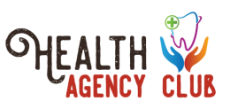Life after lap band surgery requires numerous adjustments to ensure a successful weight loss journey. One of the most significant changes patients need to make is in their diet and nutrition. In this article, we will discuss what to eat, what to avoid, and how to maintain your health after undergoing lap band surgery. We will also provide guidelines to help you make an effective dietary plan and dive into lifestyle techniques to support your goals.
The Importance of Postoperative Nutrition
Following a proper diet and adopting a nutritious eating plan plays a vital role in achieving the desired weight loss goals post-surgery. Not only will it assist in shedding those extra pounds, but it will also help maintain a healthy lifestyle. Proper nutrition helps avoid complications or issues such as malnutrition, vomiting, dumping syndrome, stomach ulcers, and gastritis. If you are undergoing the procedure, consult a qualified healthcare provider for lap band surgery in New Mexico who can guide you on the right track to a successful weight loss journey.
Foods to Eat After Lap Band Surgery
In the weeks following your lap band surgery, you will need to adjust your diet to consist of liquid and pureed food, progressing towards soft and then solid food. The goal is to consume low-calorie, high-quality proteins, and nutrient-dense foods. Here are a few post-surgery dietary recommendations:
- Liquid proteins: low-fat broths, skim milk, and high-protein shakes.
- Pureed proteins: Greek yogurt, cottage cheese, and tofu.
- Soft fish, poultry, and lean meat for protein.
- Cooked vegetables such as zucchini, butternut squash, and cauliflower.
- Low-fat dairy products.
It’s essential to take small bites, chew your food thoroughly, and consume smaller portions throughout the day. Additionally, make sure to drink sufficient water between your meals, aiming for at least 64 ounces daily.
Foods to Avoid Post-Surgery
As you embark on your weight loss journey, it’s necessary to avoid certain foods that lack nutritional value or might cause complications. Here is a list of foods to avoid:
- Fried or high-fat foods.
- Sugary foods, like cakes, cookies, and candies.
- Carbonated beverages.
- Processed meats.
- Fibrous vegetables such as corn, celery, and broccoli.
- Red meat.
- Foods that can cause gas or bloating.
Cutting down on these items will help prevent complications and ensure a long-lasting and effective result from your lap band surgery. Keep in mind that everybody’s experience is different, so it’s crucial to consult with your doctor or dietitian to address specific needs and create a customized nutrition plan.
Establishing Healthy Lifestyle Habits
Being proactive after undergoing lap band surgery will help improve the chances of achieving your weight loss goals. Regular exercise, setting realistic expectations, and joining support groups are essential components of a well-rounded approach to this lifestyle change. You can plan activities based on your interests, abilities, and comfort zone. To maintain motivation, you may also check out this blog post on weight loss expectations after lap band surgery.
In conclusion, making changes to your diet and embracing a healthy lifestyle after lap band surgery is crucial to achieving the desired weight loss results. By knowing the benefits of lap band surgery, what foods to eat, and which ones to avoid, you can make informed decisions that will support your weight loss journey. Remember to consult with your healthcare team throughout the process and stay committed to making positive changes for a healthier life.




